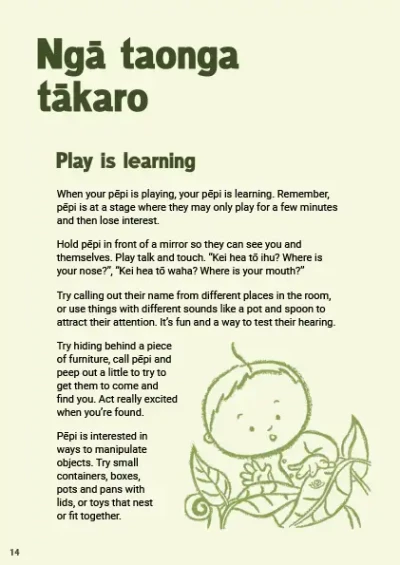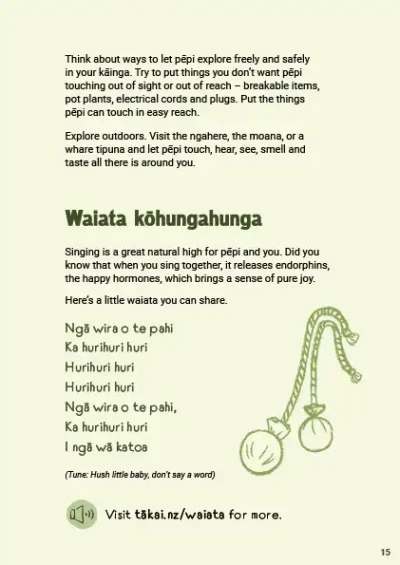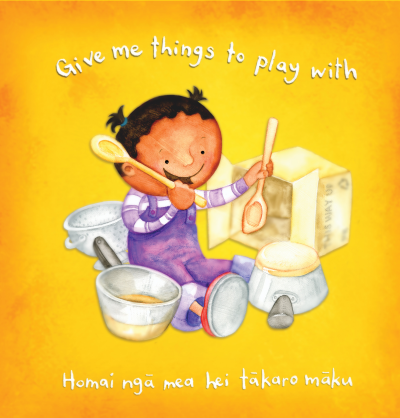
Fun and games
Play is a child's work and helps them learn. It also increases the attachment with parents and whānau. There are suggestions for repetitive and finding games.
Play is a child’s ‘work’ and is how they learn best. In the Whakatipu booklets, the activity ideas for parents to share with their kids are called ‘Ngā taonga tākaro’.
The best toy a baby can have is an interested parent.
Ask whānau:
- What have you and baby been enjoying playing together lately?
- Are there certain times of the day when you find playing together easier?
Babies love to repeat things over and over again. If they have a parent who is happy to play the repetition game, they not only have a recipe for rich learning but also for strengthening their attachment relationship.
Game ideas
If parents haven’t had a lot of play in their lives, they might need some help with ideas.
- Would you like some fresh ideas for simple activities?
Offer the following games:
- Reach and grab – Hold an object just beyond baby’s reach and let them reach for it. They’ll need to succeed sometimes, so encourage them to keep on trying and make sure they get to grab it often.
- Give and take – Hand an object to baby and ask for it back. Baby will usually hand it over willingly. Sharing and taking turns will take them years to learn, but these little games are the beginnings.
- Drop and retrieve – Babies will often drop things over the side of a high chair or buggy and look to see what happened. This is called ‘cause-and-effect testing’. If a parent retrieves it and hands it back, before long it turns into an interactive game.
- Where is it? – Hiding a toy or item for baby to find is a popular game at this stage, as baby is learning about ‘object permanence’ (which means they now know something still exists even when it’s out of sight).
Let them see you hide the toy and act really surprised when they uncover it. Older siblings will enjoy joining in this hiding game, too.
Fingerplay – Fingerplays are popular, especially with the repeated and rhythmic words that accompany them. Try ‘This little piggy’, ‘Round and round the garden’, and ‘Pat-a-cake’ for starters, and look through the other songs and rhymes for some new ones to learn.














